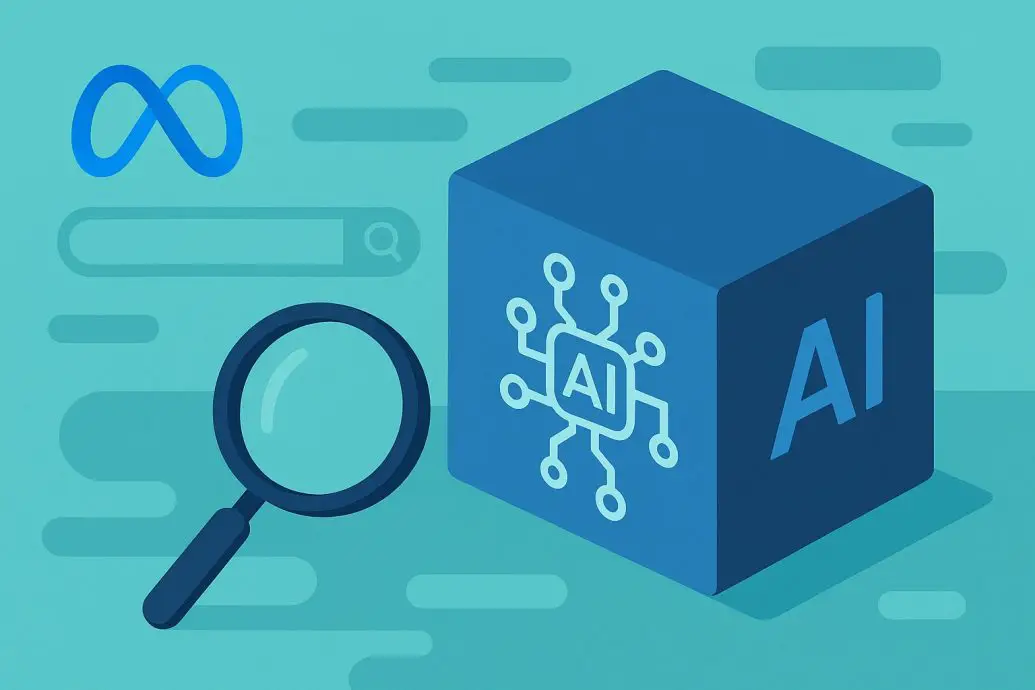Meta Unveils S3: Smarter AI Search
Meta unveils S3: Smarter AI Search. This framework enhances how large language models (LLMs) handle complex question answering using reduced supervision and computational resources. S3 stands for Search, Summarize, Submit. With this approach, Meta has redesigned retrieval-augmented generation (RAG) training. Traditional systems typically rely on heavily annotated datasets. In contrast, S3 uses task-based feedback to train AI systems on search strategies. This leads to improvements in both accuracy and efficiency on benchmarks such as HotpotQA and MuSiQue. S3 also supports scalable applications in fields like healthcare, law, and knowledge management.
Key Takeaways
- S3 allows LLMs to improve information retrieval and summarization by learning from feedback, not from manually labeled data.
- The framework outperforms previous RAG models, including DPR, Atlas, and LangChain, on open-domain question answering datasets.
- Using weak supervision reduces training costs and increases adaptability across enterprise search systems.
- Meta’s development supports broader applications in automated workflows, business operations, and information systems powered by AI.
Also Read: What is the meaning of AI? Why is it Called ‘Artificial Intelligence’?
Table of contents
What Is the S3 AI Framework?
S3 is Meta’s latest advancement in retrieval-augmented generation. Its name refers to a process similar to how people conduct research. The model searches for useful content, summarizes the findings, and submits a final answer. In contrast to conventional systems that use millions of hand-labeled examples, S3 depends on weak supervision. This technique uses task performance to refine model behavior instead of relying on detailed instructions.
This method enables AI agents to adapt more quickly while using less data. These models become more flexible by learning to recognize effective search patterns based on whether the final output is correct.
Also Read: Softmax Function and its Role in Neural Networks
Why Weak Supervision Matters in AI Training
Weak supervision lets models learn from loosely structured data. This brings several important benefits:
- Lower cost: It reduces dependence on annotation teams and curated training datasets.
- Greater flexibility: Models can handle a wider range of input types and data sources.
- Scalability: AI systems learn from final task performance, which makes them easier to deploy across diverse scenarios.
Weak supervision also supports multi-hop reasoning in open-domain question answering. Here, the model acts like a detective solving a case. It searches across multiple documents, judges credibility, marks relevant information, and builds an answer. S3 learns all of this by analyzing results instead of copying labeled paths.
Also Read: Fastest Unloading Robot.
S3 vs. Traditional RAG Frameworks: A Benchmark Comparison
Meta has published results showing S3 surpasses older RAG models on standard datasets. Here is a comparison of different frameworks on HotpotQA, MuSiQue, and Natural Questions (NQ):
| Framework | HotpotQA Accuracy | MuSiQue Accuracy | Training Cost |
|---|---|---|---|
| S3 (Meta) | 79.4% | 81.2% | Low |
| Atlas | 75.1% | 76.4% | High |
| DPR + FiD | 71.9% | 73.0% | High |
| LangChain RAG | 68.7% | 70.1% | Moderate |
S3 improves performance by aligning feedback with search behavior. Rather than rating each search individually, the model looks at the overall quality of the final answer. That enables stronger reasoning across multiple documents and better results aligned to user needs.
Production Suitability and Scalability
The S3 approach is also more computationally efficient. It reduces the need for label-heavy datasets and uses fewer training cycles. This makes it a strong choice for business environments where computing cost and deployment time are key factors.
Once trained, models using S3 can run faster. They learn to skip unhelpful sources and retrieve only useful data, which lowers delays and streamlines performance.
Enterprise and Vertical Applications
S3 can make a noticeable difference across several industries:
- Healthcare: AI tools can find targeted guidance from medical literature based on individual symptoms or cases.
- Legal review: Parsing thousands of documents becomes faster with agents that find and summarize relevant precedents.
- Customer support: Chat systems can give more relevant answers by mining internal help documents more efficiently.
- Enterprise knowledge systems: Systems can reduce mistakes by improving how internal documents are retrieved and summarized during Q&A sessions.
What Experts Are Saying
Dr. Amanda Lee, senior researcher at OpenSearch Lab, said, “S3 is a clear step toward smarter LLM systems. The focus on reasoning over replication will help agents grow with tasks rather than being stuck in legacy datasets.”
Jacob Mendez, product architect at a knowledge technologies firm, said, “We’ve tested S3 in our summarization pipelines. So far, the gains in accuracy and reductions in compute cost are strong indicators that this model is production-ready.”
Also Read: Meta Invests in AI to Boost Engagement
Frequently Asked Questions
What is Meta’s S3 framework in AI?
S3 is a training method for retrieval-augmented generation that helps AI learn how to retrieve and answer based on how well it performs, not just on labeled examples.
How does S3 differ from traditional RAG models?
Older RAG systems depend on labeled datasets. S3 relies on learning from outcomes, which brings better adaptability and lower cost.
Why is weak supervision important in AI?
It lowers data labeling needs and broadens training sources. Models learn from results instead of fixed step-by-step instructions.
Can S3 integrate with LangChain or other RAG frameworks?
Yes. S3 can improve search and summarization stages in pipelines like LangChain, leading to better performance and cost savings.
Conclusion
S3 marks a major improvement in retrieval-augmented generation. By learning from task outcomes instead of detailed labeling, Meta’s framework improves both performance and scalability. As more companies deploy this technology, S3 may reshape what is possible with efficient and intelligent AI search systems.
